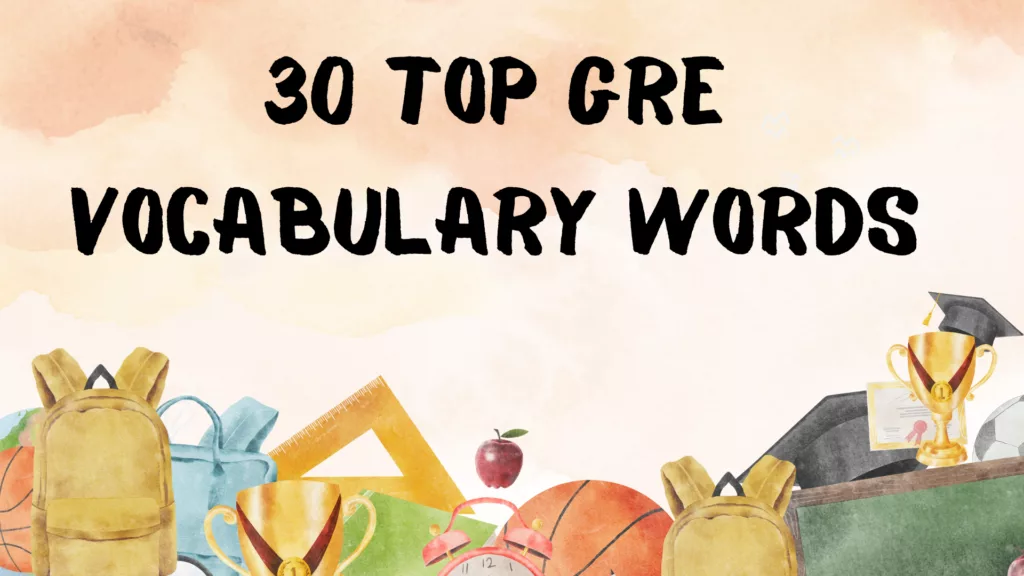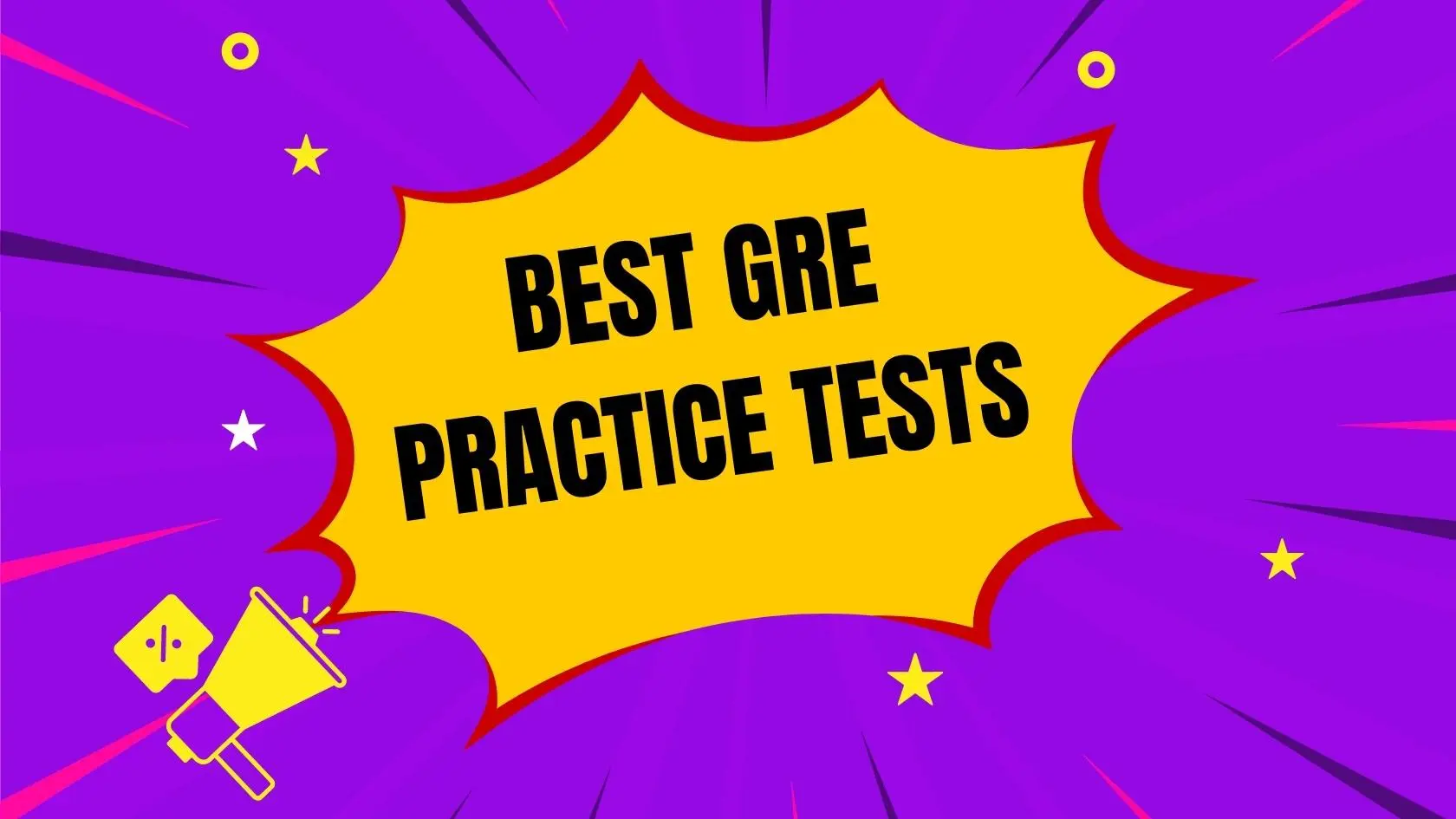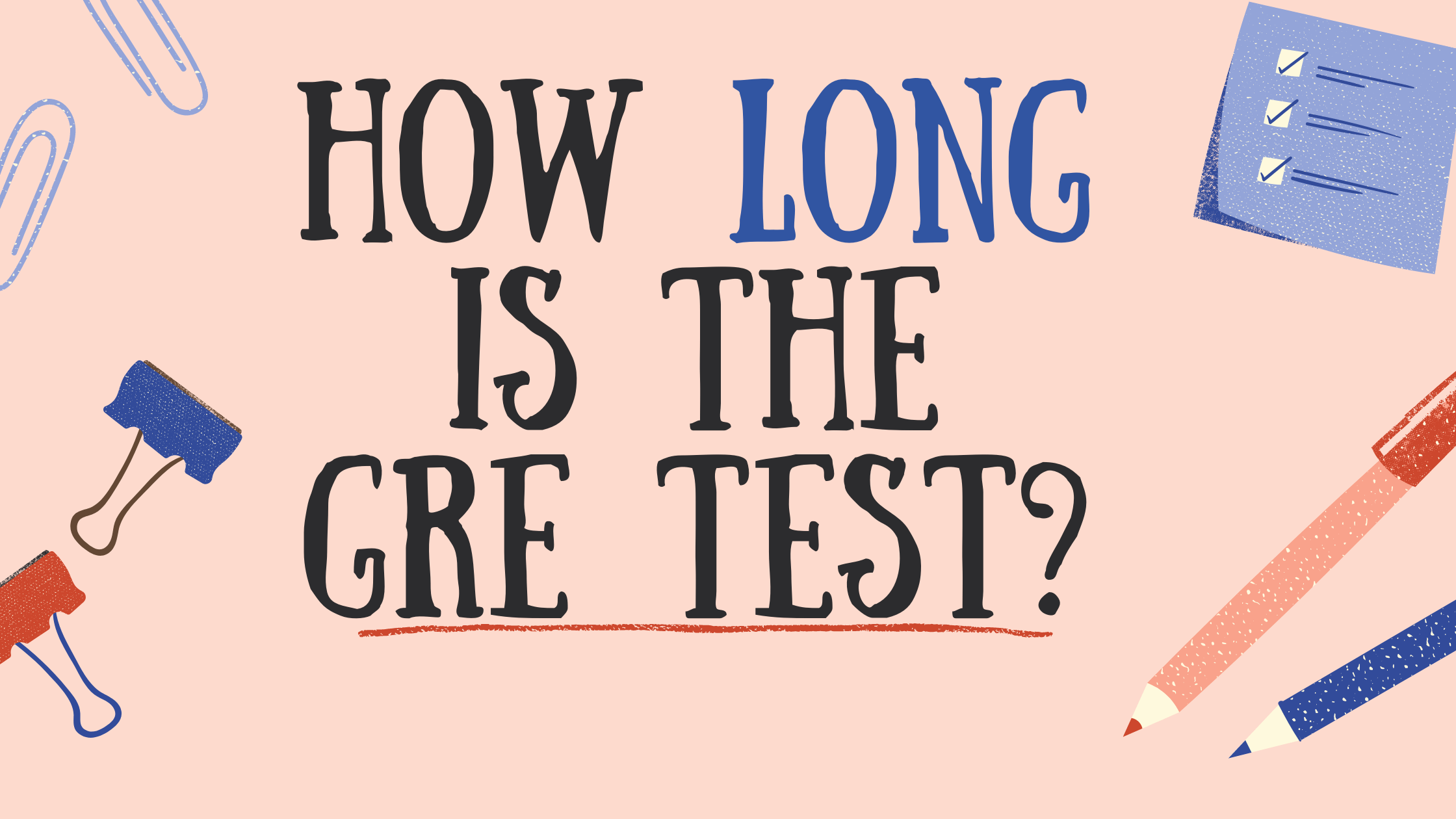Get set for test day! GRE® Vocabulary shows up in different ways. We have compiled a list of the most highly frequent 30 words that you would come across on the test day.
In the GRE Verbal Reasoning section, there are two parts with a total of 27 questions. The first part has 12 questions, and the second has 15, giving you a total of 27. You’ve got 41 minutes to handle questions about reading, completing sentences, and finding equivalents.
Understanding tricky words using context is key for a great GRE® verbal score. Below, check out 30 important GRE words, each with meanings and examples at the bottom of the page.
GRE® Vocabulary: Top 30 Words with Examples
1. Anticipated – Verb – expect, predict
- Sentence: The organizers anticipated a successful event.
2. Arcane – Adjective – known or understood by very few, mysterious or secret
- Sentence: Mr. Allan had a very arcane way of teaching mathematics.
3. Belie – Verb – to give a false impression
- Sentence: His gentleness belied his evil nature.
4. Benign – Adjective – having no harmful effect, pleasant and kind
- Sentence: The officer was kind and benign.
5. Circuitous – Adjective – not straight or direct, roundabout
- Sentence: We took a circuitous route to school and missed the class.
6. Cynical – Adjective – believing the worst of human nature and motives, negative or pessimistic
- Sentence: The cynical woman did not believe a word the boy told her.
28. Contentious – Adjective – controversial or involving conflict.
- Sentence: She has some very contentious views on education.
7. Disparate – Adjective – fundamentally different or distinct in quality or kind
- Sentence: You can’t compare both vehicles; they have disparate features in each.
27. Derivative – Adjective – imitates another work in a way that is unoriginal or uninspiring
- Sentence: A number of critics found the film derivative and predictable.
29. Discern – Verb – To perceive the difference between two or more things
- Sentence: We must discern between the truth and lies.
8. Distort – Verb – misleading or false impression
- Sentence: The funhouse mirror was designed to distort the visage of anyone who stood in front of it.
9. Dubious – Adjective – open to doubt or suspicion, doubtful or uncertain
- Sentence: In such a crazy world, it is hard not to be dubious of a stranger’s intentions.
10. Enigma – Noun – a person or thing that is mysterious or difficult to understand
- Sentence: Aristotle’s philosophy on life is an enigma for ordinary people.
11. Esoteric – Adjective – known or understood by very few people
- Sentence: Ruling an entire kingdom successfully is an esoteric business known by only a few kings.
12. Exacerbate – Verb – make worse
- Sentence: Interfering in the already heated debate would further exacerbate the situation.
13. Exaggerate – Verb – show something as larger, better, or worse than it really is
- Sentence: He tends to exaggerate the difficulties.
14. Indispensable – Adjective – absolutely necessary, vitally necessary
- Sentence: Sleep and exercise are indispensable to good health.
15. Innocuous – Adjective – not harmful or offensive
- Sentence: He’s a perfectly innocuous young man.
16. Meticulous – Adjective – showing great attention to detail
- Sentence: She inspected the house in meticulous detail.
17. Nebulous – Adjective – not clear, vague, ill-defined
- Sentence: He has a few nebulous ideas about what he might like to do in the future, but nothing definite.
18. Obscure – Verb – make less visible or unclear
- Sentence: The big elm tree obscures our view of the valley.
19. Ominous – Adjective – giving the worrying impression that something bad is going to happen
- Sentence: There was an ominous silence in the house.
20. Pedestrian – Noun – a person who travels by foot, lacking inspiration or excitement, dull
- Sentence: The speeding car barely missed the pedestrian.
21. Pervasive – Adjective – (especially of an unwelcome influence or physical effect) spreading widely throughout an area or a group of people
- Sentence: Violence and crime are pervasive features of city life.
22. Preclude – Verb – prevent from happening or arising, make impossible
- Sentence: Your role in the projects precludes your involvement in the competitive project.
23. Precursor – Noun – a similar thing that happened or existed before and indicates the approach of something or someone else
- Sentence: Sulphur dioxide is the main precursor of acid rain.
24. Prosaic – Adjective – not challenging, dull, unimaginative, and lacking excitement
- Sentence: Edward was a prosaic man who stood out in a room filled with creative people.
25. Susceptible – Adjective – liable to be influenced or harmed by something
- Sentence: Most people are susceptible to heat stroke.
30. Subtle – Adjective – Sly; insinuating; artful; cunning; crafty; deceitful; treacherous
- Sentence: He didn’t seem to understand my subtle hints.
26. Tenuous – Adjective – weak, unimportant, or in doubt
- Sentence: The rope became so tenuous that a slight pull could break it.
Read on: How to master the GRE vocabulary?










One Response
Thank you, Sir, for sharing valuable words. I hope these words will be helpful for GRE aspirants. Waiting for list of 300 most repeated words.